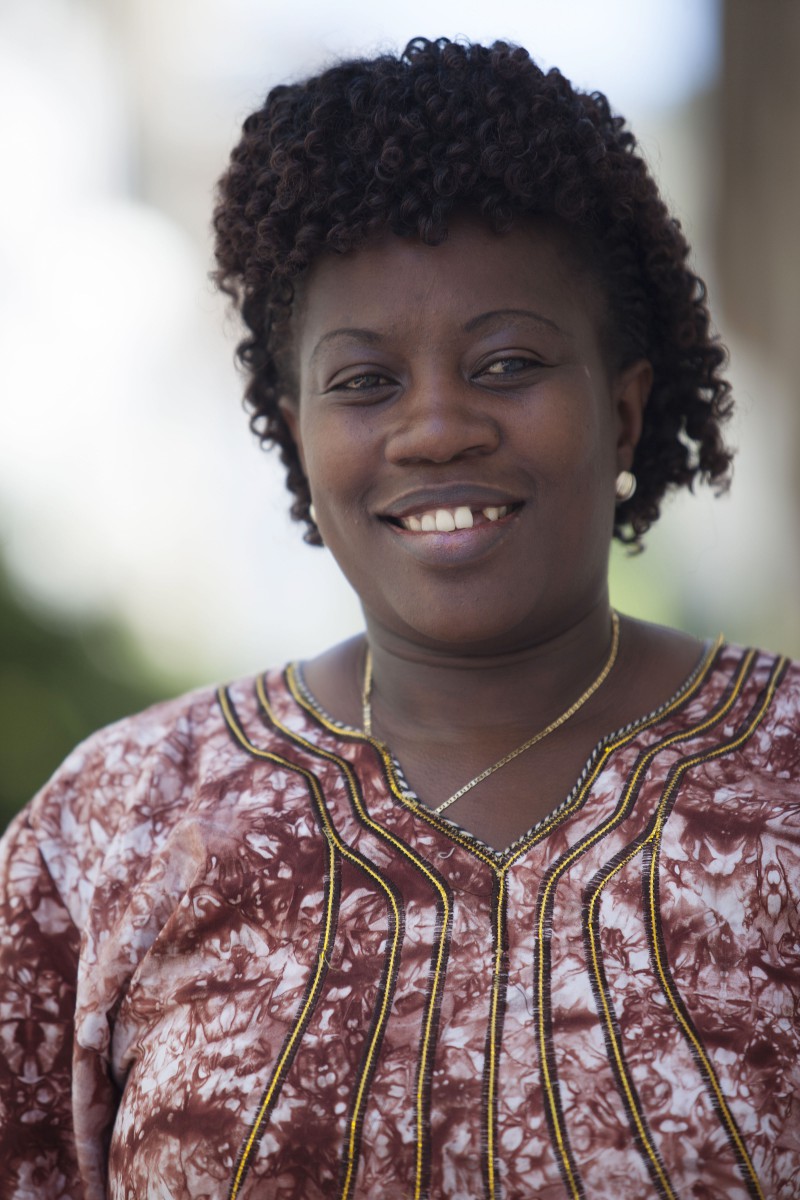Born in the Democratic Republic of Congo and now working in Cape Town as a senior trainer for Sonke’s Refugee Health and Rights Portfolio, Micheline Minani Muzaneza reveals the harrowing moment she decided to dedicate her working life to pursuing social justice
In 1994 the war in Rwanda started. I was living in Goma in the eastern part of the Democratic Republic of Congo on the border with Rwanda. They were killing people and throwing them in the lake. I remember seeing a body floating in it when I was 15.
The image which stays in my mind though is that of a baby still suckling the breast of its mother who is lying dead on the road in Goma. People were dying from dysentery at the time. Just dying on the road. People were dying like flies because of the sickness.
My parents were originally from Burundi. Looting started in 1992 and security in DRC was not good. My father, who is a medical doctor, was posted to a rural area in Masisi. It was very dangerous with many abductions happening. As a refugee he had no option to say he didn’t want to work there.
I was studying at Lycee Amani, a boarding school led by nuns. Our school was donated as an orphanage for Rwandian refugee children. We’d play with the children after school and then go back home to our parents as the orphans were now staying in our dormitories. Looking after those children in the my school, I felt my call was to help.
My father was kidnapped four times, but luckily every time someone would know him and he would escape. He used to help both Rwandese and Congolese – they said he was good with gynaecology. We didn’t have a phone so we’d wait until 5am when it started to get light. My mother would send us to different places to tell the authorities that my father was kidnapped and they would follow-up and he would come back. But all the people that were kidnapped with my father were killed. He changed, he was no longer this vibrant person. All of us were affected.
I grew up in the church helping others, and we’d go to the hospital to help people who didn’t have a family, we’d take food to people in prison. I remember my friends and I went to see a nun. We were angry at all the violence that was happening. She told us: “If you use violence you can be killed before you reach your dreams. It’s better to do it the peaceful way.” I decided then to work with NGOs to raise the issues girls face.
My mother worked with UNICEF as a Child Protector – placing children in orphanages. She worked in Tingi Tingi – a refugee camp where many people died. Sometimes a child was so traumatised and couldn’t be with other children so my mother would bring him or her home. The sad part was when they were taken from us. Even though they knew their names, we’d give them a new ones – like Furaha which means ‘joy’.
My dream was to bring peace. I wanted to work with the UN Mission. After studying economics at university in Burundi, I got a job with the UN as a public information officer – my first job. I was there for two years.
My parents were resettled to Canada. We were refugees in the DRC and when a refugee’s security cannot be guaranteed, the person must be resettled to a third country.
For us to stop sexual violence in conflict we need to stop the trade of guns. When rebels were raping women in the DRC most of them came with weapons; they can’t rape you in front of your family if they don’t have guns. If they come with knives, your father or your brother will fight for you. But the rebels came with weapons…
There is a stigma around rape. You are dirty, you contracted STD’s, they blame you, what were you doing at this place at this time? Why did you go to fetch water when there were only three of you? Many people were rejected by their lovers, husbands. Others fell pregnant. Abortion is unacceptable. We were told: It’s a sin, even God can’t forgive you for. So there are those women who are having children out of rape.
Some women do not tell their husbands what happened to them during the war for fear of experiencing domestic violence. During a group discussion, one woman mentioned that her husband wears a shirt that looks just like one her rapist wore. Every time she sees the shirt, she is reminded of what happened to her. She destroyed the shirt. But her husband bought another one exactly the same.
We need to educate communities on not victimising the survivor. The survivor themselves also needs to be educated. And the perpetrators too. There are many people who joined the rebel movement when they were 12. Now he’s a man of 25 – all his teenage years, when he’s exploring his sexuality, it was all violence and rape. So that has become his life.
As a facilitator sometimes you come face-to-face with a perpetrator. A man once came to a workshop because he was not able to sleep. Every night he said he dreams about people screaming ‘Please forgive me! Please leave me!’. So he doesn’t sleep – at 2 am he’s awake. I told him I’ll help him by taking him to the trauma centre.
I used to blame. But after listening to people’s stories… For me to change the life of someone like this guy who was a perpetrator – stories like this keep me doing this work.








